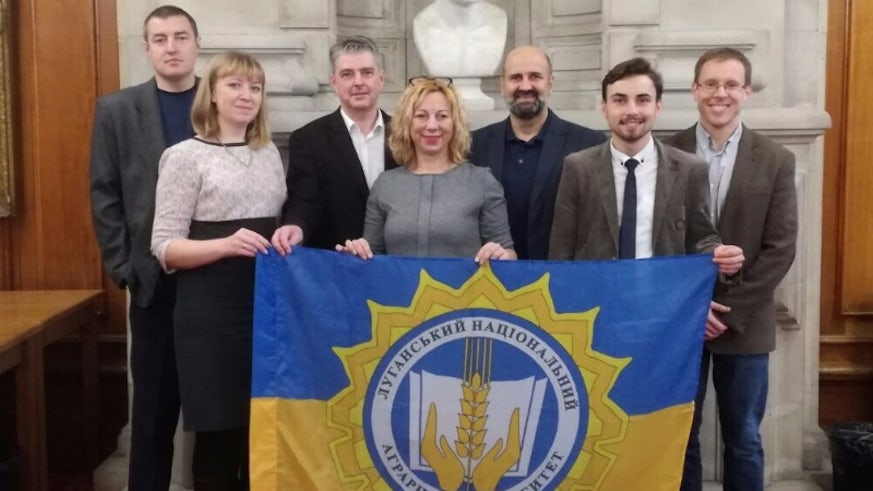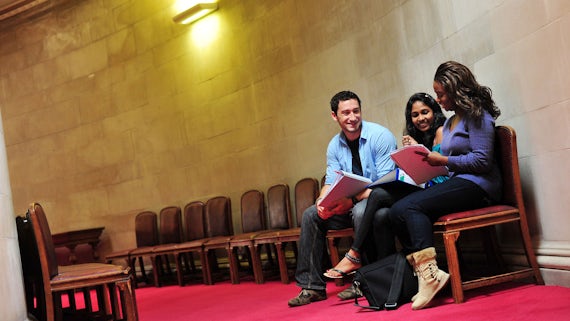Supporting institutional renewal and promoting teaching excellence in Ukraine
14 December 2017

Cardiff University’s School of Geography and Planning is supporting Ukrainian peers with the post-conflict reconstruction of teaching capacity and resource, following their displacement from Eastern Ukraine in 2014.
The School, funded by a grant from the British Council, hosted a delegation of academics and professional services staff from Ukraine’s Lugansk National Agrarian University (LNAU) in Cardiff 20-24 November 2017.
LNAU’s facilities and campus were all but decimated by the conflict in Eastern Ukraine and it is currently being hosted temporarily by Kharkiv National University as it looks to rebuild its teaching and research capacity.
The Ukrainian delegation, comprising five academic and administrative members of staff, was officially welcomed to Cardiff by Professor Paul Milbourne, Head of the School of Geography and Planning. Professor Milbourne was keen to stress that the School stood in professional solidarity with the LNAU faculty and was proud to support the University’s reconstruction.
The visit was a pedagogical, cultural and social exchange of ideas and scholarship. A full itinerary, organised by Dr Richard Gale from the School of Geography and Planning, included sessions and workshops with a wide range of staff from the School and central departments within Cardiff University. The overarching aim was to showcase the School’s approaches to teaching and learning, which are highly ranked and internationally recognised for excellence, alongside Cardiff University’s academic vision and structure.
The sessions were carefully planned to provide the delegation with a broad introduction to a range of key activities and themes, such as planning to effect change, innovations in education, tackling challenges to teaching and learning in Ukraine, and university teaching without borders.
Alongside the formal activities, there were a number of social and cultural engagements with visits to the National Museum of Wales and the Cardiff Story Museum. These visits provided the delegation with an introduction to Wales’ agricultural, industrial and folk heritage and an opportunity to reflect on the long-standing historical ties between Cardiff and Lugansk, which are formally twinned. This relationship is in part a recognition of the contributions of Welsh businessman John Hughes in setting up major metal works in the Donbass region of Eastern Ukraine in the nineteenth century. This resulted in the city which is now known as Donetsk being established in 1869 as Hughesovka in honour of John Hughes.
Following a farewell dinner, Dr Gale said: “I’d like to thank everyone involved in making the Ukrainian delegation’s visit such a success and for extending such a warm welcome. It was a highly productive and informative week with new relationships established and clear opportunities identified to work collaboratively in the future in areas of teaching and research.”
Professor Milbourne concluded: “The conflict in Eastern Ukraine significantly curtailed LNAU’s activities and caused the displacement of staff and students. This has impacted on teaching capabilities and research reach. We are, as recognised specialists on rural and agrarian themes, very proud to support the staff and the University as it looks to rebuild its capacity and regain its former stability as an institution.

“This visit has reaffirmed South Wales and Eastern Ukraine’s strong historical and symbolic ties but also provided an opportunity to create institutional ties between Cardiff University and LNAU, which will be of lasting significance. I look forward to our future collaborations and witnessing LNAU’s renewal.”


